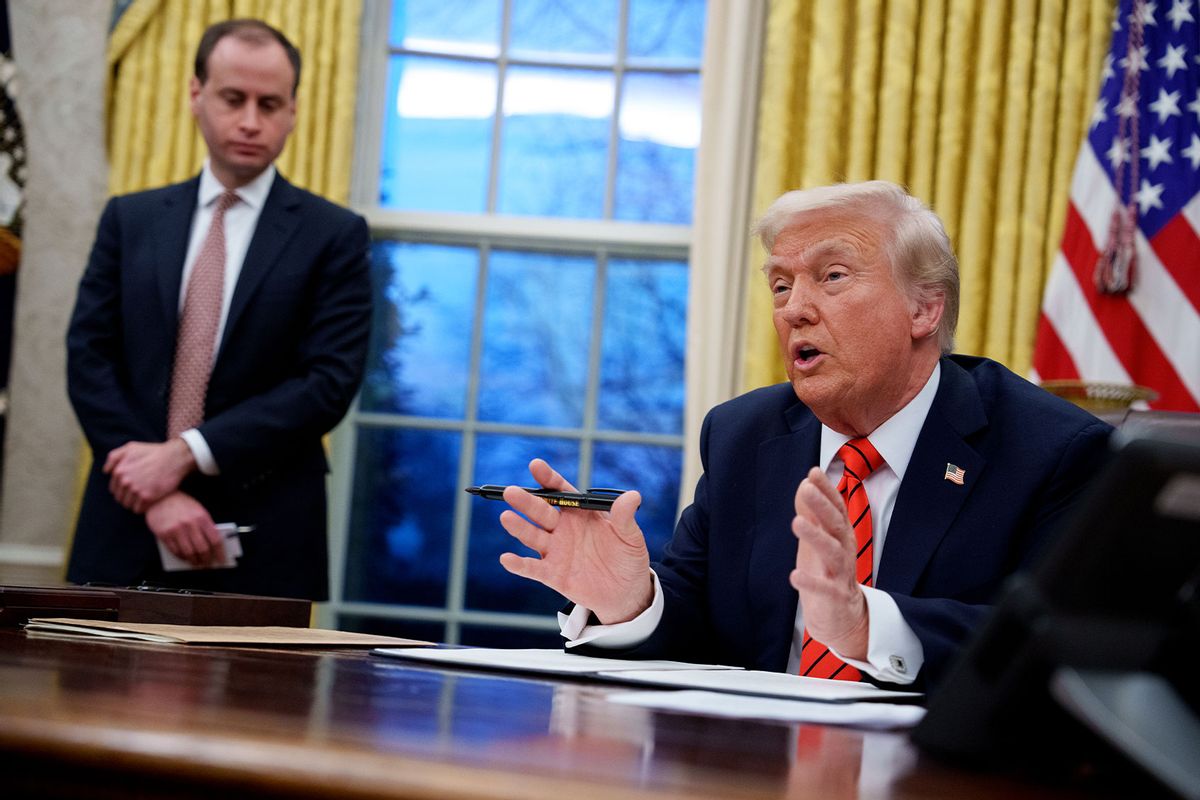Donald Trump may be a fan of archaic laws, but an executive order signed on Monday shows he has little concern for the Posse Comitatus Act.
In an order focused on protecting law enforcement officers from legal repercussions, Trump included an aside to Secretary of Defense Pete Hegseth and Attorney General Pam Bondi. It asked the duo to "determine how military and national security assets, training, non-lethal capabilities, and personnel can most effectively be utilized to prevent crime."
Using "personnel" to "prevent crime" seems to run afoul of the 1878 law, which is one sentence long.
"Whoever, except in cases and under circumstances expressly authorized by the Constitution or Act of Congress, willfully uses any part of the Army or the Air Force as a posse comitatus or otherwise to execute the laws shall be fined under this title or imprisoned not more than two years, or both,” the act reads, with later laws extending the same restrictions to the Navy and the Marine Corps.
The law has some truly disreputable origins — being a key plank in the end of Reconstruction in the secessionist South — but the general idea of keeping the military separate from civilian law enforcement is a fairly sound principle. As Trump has ramped up his program of deportations, taken an axe to due process and continually inveighed against his political enemies, the directive to root around for loopholes is cause for concern.
Elsewhere in the order, Trump ordered Bondi and other agency heads to push for increased pay and benefits for law enforcement officers and to strengthen legal protections for police. It also encouraged a reexamination of federal consent decrees, a legal mechanism that is commonly used to encourage notably violent police departments to reform.
Another order Trump signed on Monday sought to punish sanctuary cities for their failure to cooperate with immigration enforcement. The order charged federal department heads with identifying funding that might be reduced or terminated in municipalities that "obstruct the enforcement of Federal immigration laws."



Shares